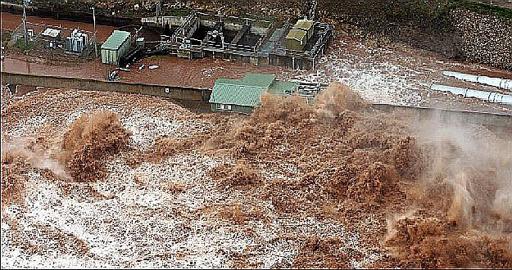"A list of earthquakes and tsunamis that devastated several countries in recent times, we can add a masterly and shocking event, a metaphorical earthquake that destroyed a political party," says The Age. Indeed, the liberal coalition Barry O'Farrell has just ended at sixteen years of political domination by the Labour Party on the Parliament of New South Wales.
A win "long-planned" but "no less impressive. Sixteen years in power to find the best with 22 seats, with the worst 19 in a parliament that has 93 "the worst election result for Labour in 107 years." The paper says this is the beginning of the end for the party that had yet three years ago all Australian states.
Today the liberal opposition controls the two most populous states (Victoria and New South Wales) and Western Australia and its natural resources. What explains this reversal? In New South Wales, says the Sydney Morning Herald, it comes down in a few words: "a terrible government, scandals extraordinary, frequent leadership changes, internal fights and poor management." While the election result is a true "massacre," says daily, but we must rejoice in the "disappearance of a toxic system." Voters ended a certain style of politics practiced by the workers' rights, "a style obsessed with short-term sacrifices and tough decisions at the altar of populism." "When the mining regions and workers began to abandon the Labour Party, observeThe Australian, we are witnessing a historic shift." The newspaper, like many analysts, believes that voters have voted overwhelmingly against "a government inept and disgraceful," but also and perhaps especially against a proposed carbon tax much-maligned, especially in regions "blue collar" , mining and manufacturing, where the "price increases for electricity and gasoline would have a severe impact on quality of life of their inhabitants." 


A win "long-planned" but "no less impressive. Sixteen years in power to find the best with 22 seats, with the worst 19 in a parliament that has 93 "the worst election result for Labour in 107 years." The paper says this is the beginning of the end for the party that had yet three years ago all Australian states.
Today the liberal opposition controls the two most populous states (Victoria and New South Wales) and Western Australia and its natural resources. What explains this reversal? In New South Wales, says the Sydney Morning Herald, it comes down in a few words: "a terrible government, scandals extraordinary, frequent leadership changes, internal fights and poor management." While the election result is a true "massacre," says daily, but we must rejoice in the "disappearance of a toxic system." Voters ended a certain style of politics practiced by the workers' rights, "a style obsessed with short-term sacrifices and tough decisions at the altar of populism." "When the mining regions and workers began to abandon the Labour Party, observeThe Australian, we are witnessing a historic shift." The newspaper, like many analysts, believes that voters have voted overwhelmingly against "a government inept and disgraceful," but also and perhaps especially against a proposed carbon tax much-maligned, especially in regions "blue collar" , mining and manufacturing, where the "price increases for electricity and gasoline would have a severe impact on quality of life of their inhabitants."



- Nolwenn Leroy - Attaquée (09/04/2011)
- Anti-Establishment History Is the Constitution Really Inimical To States Rights? Part 4 (27/03/2011)
- EDF wants full ownership of alternative energy subsidiary (12/04/2011)
- News Chief Pushes Multimedia (03/04/2011)
- Village of the damned / Le village des damnés (12/04/2011)
No comments:
Post a Comment